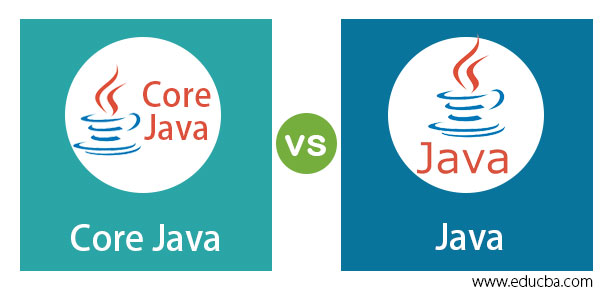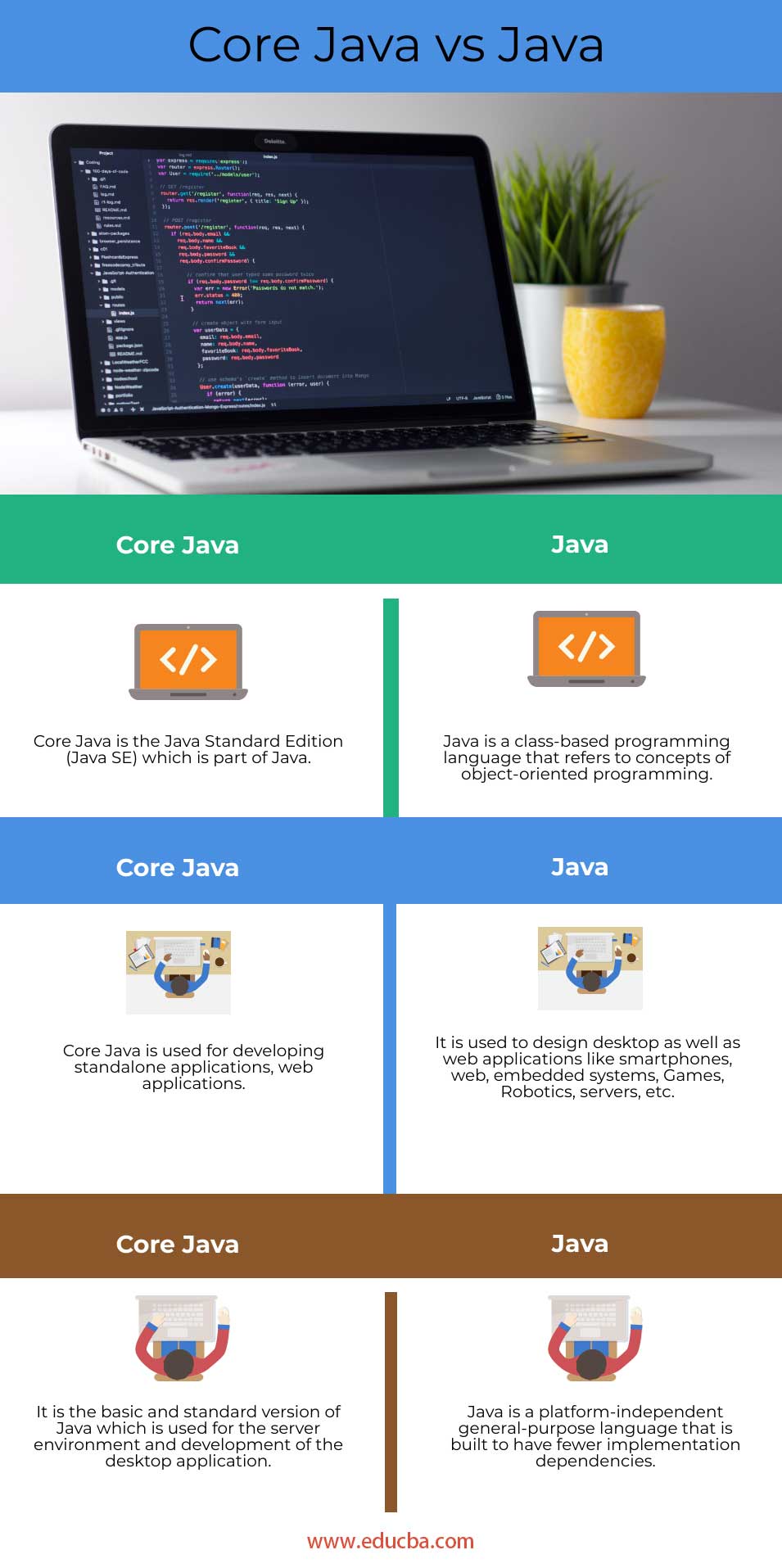Updated July 6, 2023

Difference Between Core Java vs Java
Java is a highly functional programming language based on object-orientated (OOP) principles derived from much of the C and C++ syntax. It is designed particularly to have fewer dependencies than its previous versions on implementation. Sun Microsystem developed it and was later acquired by Oracle Corporation, a multinational computing platform for the development of application software. Its version of Java is the most simple and stable and consists of both general and special-purpose APIs. This is because it gives rise to all other Java versions; the regular version is called Core Java. In this article, we will discuss the full concept of core java vs java.
What is Java?
Due to its readability and usability, Java is hypothetically everywhere. Java is everywhere, from mobile devices to websites, game consoles to data centers, from cell phones to the Internet. Millions of computers worldwide use Java as a Core language of programming. Almost all native Android apps use Java, and several businesses use Java for the development of backend scripts as the server-side language. You need to install Java for many applications and Websites because it is fast and safe. What started simply as an Internet language became one of the most powerful web languages ever to be created.
What is Core Java?
This is a general term for the mainstream edition of Java, developed by Sun Microsystems. It is the most basic version of Java that provides the basis for all other Java versions as well as a set of similar technologies such as CORBA, Java VM, etc. Core Java does not refer to the programming language but a set of libraries. This is the purest version of Java, used mainly for general desktop applications. Simply stated, the Java SE application section contains both the general-purpose APIs and the special-purpose APIs. It offers a profound knowledge of the Java language itself to the main features of Java. Core Java is a part of Java that represents J2SE, with all basic Java principles and package information. It is an individual Java program that covers OOP to Special Operators, data type to wrapper classes, connected list to array list, and queue to exception management. This software covers all aspects.
Head to Head Comparison Between Core Java vs Java (Infographics)
Below are the top 3 differences between Core Java and Java:

Key Differences Between Core Java vs Java
Below are some of the key differences:
Java is a language based on the principles of high-level object-orientation programming and incorporates much of the C and C++ syntax. Java is a language for cross-platform compatibility and has fewer dependencies to incorporate compared to other languages of programming.
Java is versatile, stable, and platform-independent, making it the perfect option to build applications for various platforms, including smartphones, web, embedded systems, servers, and more. Core Java refers to the Java Standard Version of the Java platform (Java SE), which is the basic cornerstone of both Client and Server Enterprise Application Development. Core Java teaches the basic programming language of Java programs, including OOP principles, Multi-Threading, Exception Management, Polymorphism, etc.
Core Java vs Java Comparison Table
Here is a comparison table showing similarities between Core Java and Java:
| Core Java | Java |
| Core Java is the Java Standard Edition (Java SE) which is part of Java. | Java is a class-based programming language that refers to concepts of object-oriented programming. |
| Core Java is used for developing standalone applications and web applications. | Companies and developers actively utilize software testing methodologies to design and test a diverse range of applications, including desktop applications. |
| It is the basic and standard version of Java which is used for the server environment and development of the desktop application. | Java is indeed a platform-independent general-purpose language designed with the aim of minimizing implementation dependencies. |
Conclusion
Among the two, there is no distinction. Everything is Java alone. Java is a classroom-based high-level programming language developed by Oracle Corporation, Sun Microsystems.
Recommended Articles
This is a guide to Core Java vs Java. Here we discuss what is Java and Core Java along with their key differences with infographics and comparison tables. You may also have a look at the following articles to learn more –

